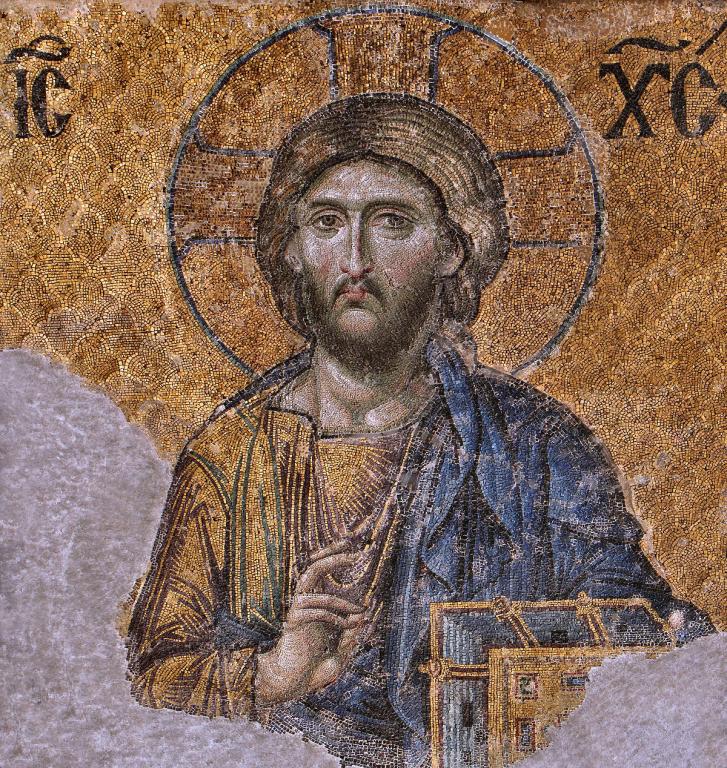
I wonder if the rich young ruler who came to Jesus would have resonated with Immanuel Kant’s philosophy. As far as I know, neither the young rich ruler nor the great German philosopher ever mentioned Jesus by name (at least not in Kant’s Religion within the Limits of Reason Alone). And, whether Kant’s Jesus could be identified with God, as one recent article suggests is plausible, Kant did believe the Gospel of Matthew (which recounts the conversation between Jesus and the rich young ruler) conveys Kantian ethics “with Jesus as its wise moral teacher” (Refer here). At the very least, the rich young ruler considered Jesus to be a wise teacher of morality. After all, he asked Jesus, “Teacher, what good deed must I do to have eternal life?” (Matthew 19:16; ESV)
Those of a “Moralistic Therapeutic Deistic” bent today may also consider Jesus to be a source or guide to moral living, whether any MTD types take even remotely seriously Matthew’s conviction that Jesus is God. The theme of “God with us” runs through the Gospel of Matthew from beginning to end: “‘Behold, the virgin shall conceive and bear a son, and they shall call his name Immanuel’ (which means, God with us” (Matthew 1:23; ESV; underline added). “And Jesus came and said to them, ‘All authority in heaven and on earth has been given to me. Go therefore and make disciples of all nations, baptizing them in the name of the Father and of the Son and of the Holy Spirit, teaching them to observe all that I have commanded you. And behold, I am with you always, to the end of the age’” (Matthew 28:18-20; ESV; underline added).
What is missing for any MTD type who comes to Jesus simply to get moral advice to live a happy life is the Gospel of Matthew’s presentation of Jesus as the moral order. As the God-Man, Jesus “recapitulates” or transforms the creaturely order, a point that St. Irenaeus of Lyons brought home in his work, Against Heresies (Refer here to his discussion in vol. V.21.1; refer here to an earlier post I wrote on recapitulation). For example, Jesus is the fulfillment of the Abrahamic and Davidic genealogical line (Matthew 1:1-17). Moreover, while Israel failed to follow God during the forty years of testing in the wilderness, Jesus was faithful during his forty days of testing in the wilderness (Matthew 4:1-11). And whereas Moses went up on the Mount to get the Law, Jesus went up on the Mount to give the Law (Matthew 5:1-2). Jesus is the Moral Order. Thus, he spoke and continues to speak authoritatively, unlike the leaders of the religious establishment of his day (Matthew 7:28-29). We must obediently build our lives on the solid foundation of his words that flow from his very person to find eternal life (Matthew 7:21-27).
Another way of putting the preceding account of recapitulation is that Jesus “institutes” our humanity as the God-Man. In a later post, I will highlight the Spirit’s work of constituting Jesus and our humanity, as reflected in Matthew’s Gospel. As one of my former teachers, Prof. John Zizioulas, claimed in Being as Communion, Jesus “institutes” our humanity and the Spirit “constitutes” it.
What does this mean for us, especially for those of us who claim to follow Jesus? We must not view Jesus or his teachings as illustrative of a more fundamental moral order. Jesus does not exist to help us live moral lives. He is more than a great moral teacher. He is the moral order that frames our existence. So, when Jesus told the rich young ruler in Matthew 19 that the young man still lacked one thing to gain eternal life (even though he had supposedly obeyed the Law since his childhood)—namely, to sell his possessions and give the proceeds to the poor to gain treasure in heaven, and come follow Jesus—the Lord was not pulling a rabbit out of a hat. Jesus is the good life. Anyone who thinks they can gain eternal life through the Law without following the Lord and human embodiment of the Law—Jesus of Nazareth—is gravely mistaken. Jesus does not exist to make us happy, or simply to help us live moral lives. He is our happiness, the moral order, and the embodiment of our true humanity. Stick close to him.












